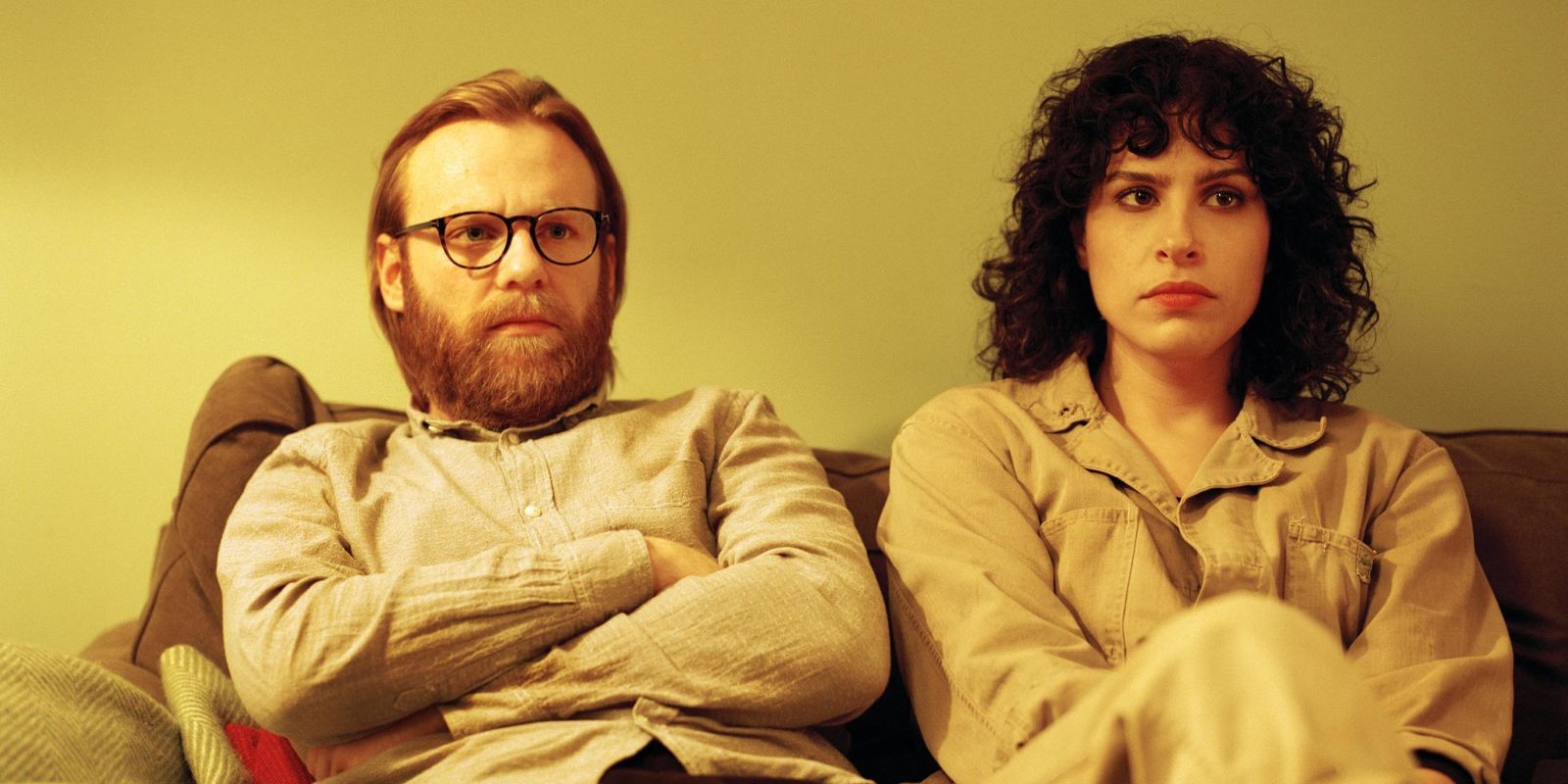How many queer mixed-race women can you name that have written, directed and produced? Probably not many. Even better, how many bisexual mixed-race women can you name? It goes without saying that queer women, particularly BME and mixed-race queer women, struggle to be accurately represented in the media. So, it’s no surprise that Desiree Akhavan, the lady behind The Miseducation of Cameron Post, Appropriate Behaviour, and now Channel 4’s The Bisexual, took matters into her own hands. Queer representation is important. Representation of queer women from minority ethnic backgrounds is even more important.
Bisexuality is deeply stigmatised against by both the LGBTQ+ community and wider social circles. In many ways, it is incredibly misunderstood, and this is very much addressed by The Bisexual. Calling out something which is problematic through comedy is often a very effective way of combating the problem at hand: Desiree Akhavan has taken the representation of bisexual individuals and placed it at the forefront of viewers consciences with a clever, comedic twist. Akhavan’s character, Leila, jokes with her circle of lesbian friends that bisexuality “isn’t real”, and, indeed, when her ex-girlfriend Sadie, played by Maxine Peake, finds out that Leila has been sleeping with a man, she’s infuriated. The constant “joke” surrounding bisexuality is referenced throughout the series. Short but sweet with a mere six episodes, each half an hour in length, The Bisexual truly is queer representation at its finest.
The Bisexual is the best TV programme I’ve seen in a while. The humour of this TV programme is sarcastic, perverted, and at points, very dark. It starts off light and airy, and, at times, deals with dark issues surrounding mental health, abuse, and relationship issues. For fans of Phoebe Waller-Bridge’s Fleabag, which similarly moves from hilarious to dark quite quickly, The Bisexual will make suitable viewing.
The show features a collection of infamous LGBTQ+ individuals, including Linda Riley and, of course, Desiree herself. Linda owns DIVA magazine, which is the UK and Europe’s leading magazine for lesbian and bisexual women. Queer women remain at the core of the TV programme, and it’s for this reason that it’s a game-changer.
Further to this, its depiction of same-sex relationships is groundbreaking. Same-sex relationships, specifically relationships between two women, are often fetishised and misrepresented. The Bisexual, in portraying the break-up between Leila and Sadie, represents queer relationship issues justly. Break-ups between lesbian and bisexual women can often be brutal, as is depicted in the TV show. Ladies can be fiery, and two ladies in a relationship make for an even more fiery combination. Whoever decided that lesbians were “soft” – I beg to differ.
Akhavan herself identifies as bisexual. In an interview with the Radio Times, she revealed that identifying as bisexual makes her uncomfortable. Not because she’s not confident in herself, but because she dislikes the way the media portrays bisexuality: “If I’m with a woman, I’m a lesbian…if I’m with a man, holding a man’s hand, we’re straight. I am bisexual – why is that such an embarrassing thing?” Society has overwhelmingly had a tendency to categorise sexuality into the binary “gay” and “straight” labels. Despite this, bi representation in the media is improving, with celebrities such as Cara Delevingne, Janelle Monae and Kristen Stewart all identifying as bisexual. Things are moving in the right direction.
Akhavan has spoken of the need to have queer people “at the wheel” of LGBTQ+ TV programmes and films. The Bisexual deals with issues directly relating to queer people, hence it is important that someone who has undergone these same experiences first hand is at the forefront of the decision-making process. There’s nothing worse than an LGBTQ+ TV programme or film which has been produced by straight people and for the male gaze – Blue Is The Warmest Colour, I’m looking at you. It is for this reason that The Bisexual is so fundamentally important: it presents queer issues from the perspective of a queer character, written by a queer individual. Queer stories and queer experiences are queer to their very core, and they should remain just so.
Eleanor Noyce
Image: Digital Spy

